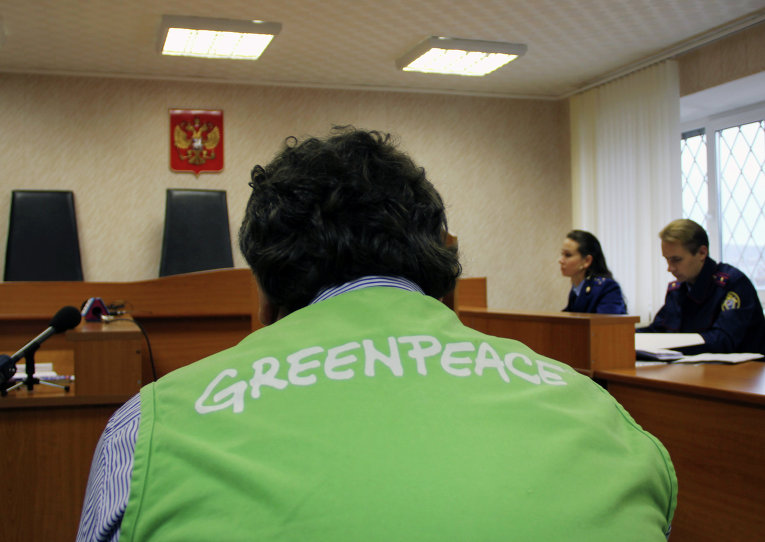MOSCOW, October 2 (RAPSI) - The Ministry of Foreign Affairs of Argentina will officialy address the Russian authorities to release Greenpeace activists suspected of maritime piracy from pre-trial detention and put them under house arrest, Infobae website reports citing foreign minister Héctor Timerman.
The minister said that he will provide the Russian authorities with "written state guarantees". Argentine's ambassador in Russia will take responsibility for the Argentinian members of the Arctic Sunrise crew while they will remain under house arrest.
The minister added that president Cristina Fernández de Kirchner is aware of the situation and ordered an Argentinian diplomat to be present at Murmansk, where the activists are currently held.
The Arctic Sunrise ship was seized by Russian border guards on September 19 in international waters, within Russia's exclusive economic zone, a day after two Greenpeace activists scaled the Prirazlomnaya drilling rig in the Pechora Sea, the southeastern part of the Barents Sea. Greenpeace claimed that the ship was held under armed guard.
Russian investigators said the vessel was involved in maritime piracy, a crime punishable by up to 15 years in prison, and that an investigation would be conducted to consider the allegations. The ship is expected to arrive in the Russian port of Murmansk on Tuesday.
Media reports claim that some 30 people, including six Britons and one American, were on board the vessel. All of them have been detained until November 24.
At present, investigators are carrying out an inspection aboard the ship. Documents in a foreign language and some equipment have been already impounded. All persons involved in the case may be officially charged in the nearest time.
The platform, owned by Gazprom Neft Shelf, a subsidiary of Russian energy giant Gazprom, is the first ice-resistant stationary oil platform in the world set to produce offshore Arctic oil.
Greenpeace and other environmental groups oppose drilling for oil in the Arctic because they say that it is currently impossible to sufficiently clean up potential oil spills in the region, and that such drilling cannot be economically viable without state subsidies.



